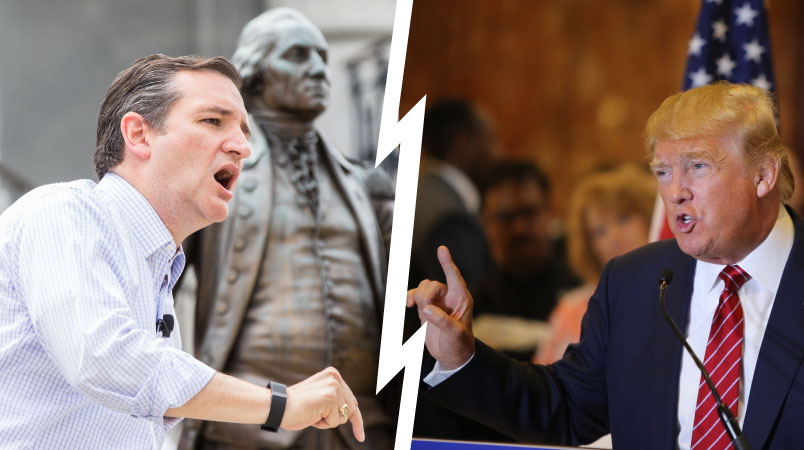There’s no better way to understand the arbitrary mutability of ‘conventional wisdom’ than to look at the dramatically changed perceptions of Donald Trump’s chances of securing the nomination after his big win in the New York primary – an entirely predictable and predicted event. I’ve seen a few people argue that Trump overshot his predicted margins by a few points. That, we’re told, made the difference. But no. That doesn’t make sense. The conventional wisdom was simply wrong in the first instance, driven by emotion and wishful thinking, and destined for a sharp reversal.
In the weeks between the Wisconsin and New York primaries many pundits had come to the point of confidently predicting that if Trump couldn’t get to 1237 delegates on the first ballot, he was done. Not just he wouldn’t be assured the nomination or even the best bet, but done. In the New York primary you had a result that made sense both because of the nature of the New York GOP, Trump’s being a New Yorker himself and because the other remaining candidates – particularly Cruz – had close to zero traction in New York State. It didn’t just make sense. Everyone expected and predicted it! And yet, it changed everything.
As we can see here, on the London betting markets (just hard conventional wisdom), Trump’s likelihood of being nominee dropped from 70% to just under 45% in the days just before the Wisconsin primary and then stayed there for about two weeks. Since the New York results, they’ve recovered almost all that ground.
So what is this about? Simple: Conventional wisdom is driven heavily by emotional responses to highly predictable events.
The Wisconsin primary itself was another example. In the run of two weeks prior to Wisconsin Trump had a pretty awful media week. But I stress ‘media week’. His wartime campaign manager was arrested for assaulting a reporter; he bobbled his answers on abortion; and then he lost the Wisconsin primary to Ted Cruz. Taken together these were believed to be death knell that moved Trump into ‘Zombie campaign’ territory, maybe too far ahead to be stopped but fatally damaged nonetheless.
There was an additional factor. People may hate Ted Cruz but they have a deep (and not unreasonable) faith in his smarts, canniness and organizational ability. During the weeks in question he started beating Trump on the ground in a number of key states, taking advantage of Trump’s almost total lack of preparation for the subsequent state delegate conventions which actually choose at least the identity of the delegates and in some cases the distribution of delegates too. All of this created the mirage of the Cruz revival, or as I’ve termed it, the Dead Ted Bounce.
The problem is that Cruz just wasn’t pulling in that many delegates. Not enough to shift the calculus. And there was never any evidence from the polls that any of this shift in Trump’s fortunes was true. Indeed, other than a very slight blip during the period in question (quite possibly just noise), Trump is at the highest point he’s been in the national GOP primary polls so far; both Cruz and Kasich are dipping. Meanwhile, you’ve seen a number of key Republicans – Reince Priebus, Marco Rubio and others – move toward begrudging acceptance of Trump’s nomination. Another data point: he appears to be approaching absolute majority support in the latest polls in California. Do well enough there and he could get to 1237.
Here the ingrained hatred for Cruz was at least partly his undoing. Early this month, Cruz emerged as the only conceivable challenger to Trump. Indeed, the party machinery was betting almost everything on him. Yet antipathy to Cruz was so great that even as they were placing their future in his hands, virtually no leading Republicans (especially his Senate colleagues) were willing to do as little as to endorse him! Think about that. There’s no better measure of the degree to which the man is reviled.
What does it all mean? Very little has actually changed since early March when Trump’s nomination seemed like something close to an inevitability. If Ted Cruz wasn’t widely hated by virtually everybody – and if he’d been able to get Kasich out of the race – there might have been some chance to shift the odds. But both of those obstacles were and remain immovable. The fundamentals remain the same. Donald Trump is hugely popular with the Republican base. He’ll arrive in Cleveland with far, far more delegates than any other candidate. Even if he comes just short of 1237 delegates, he’ll be very, very hard to stop.






